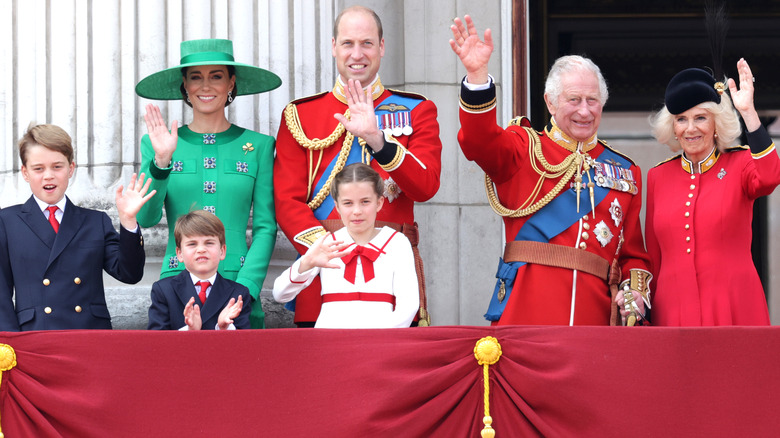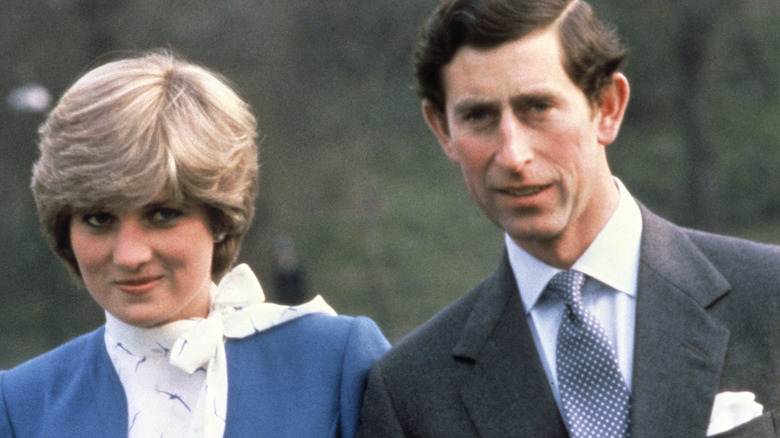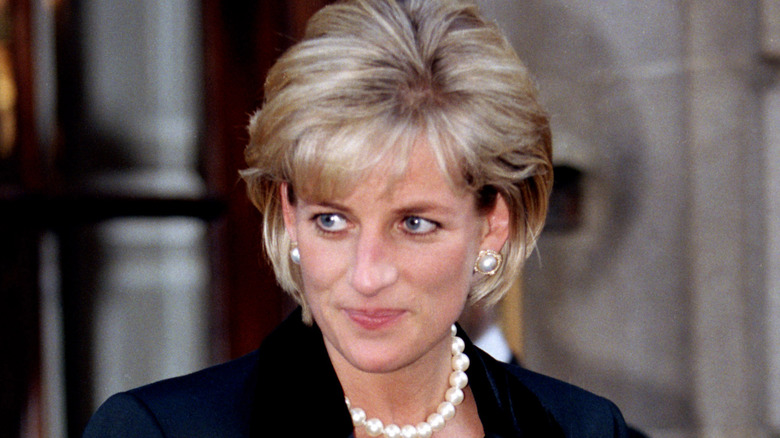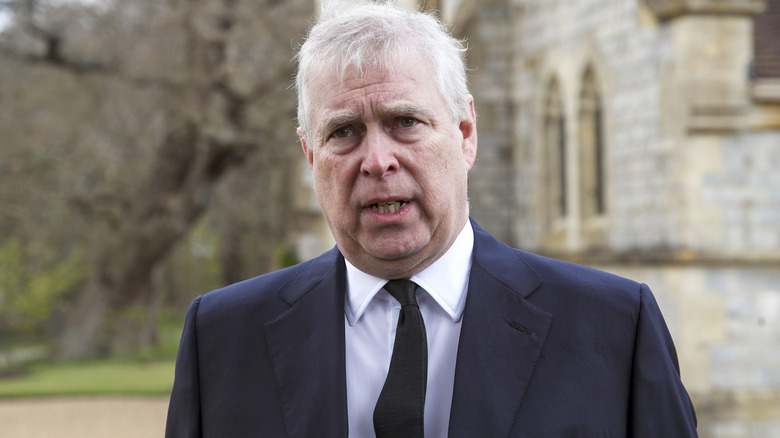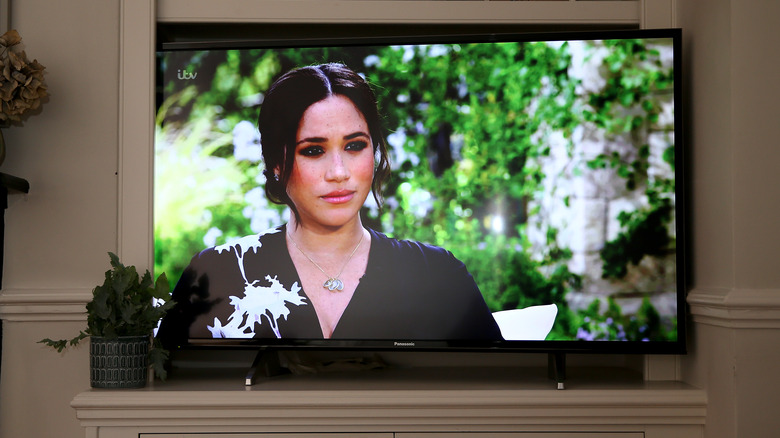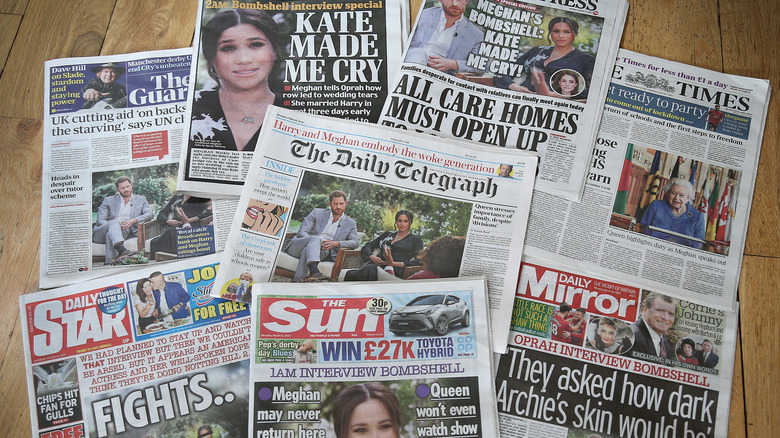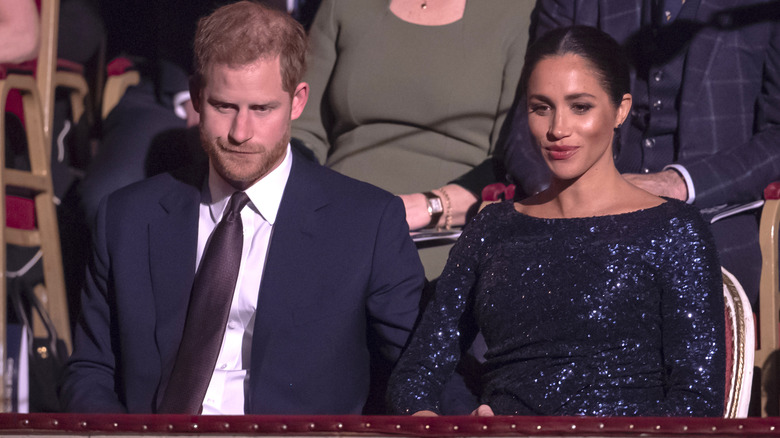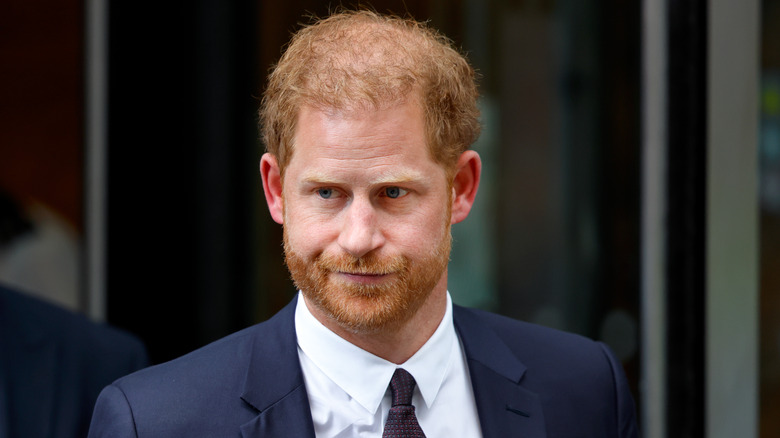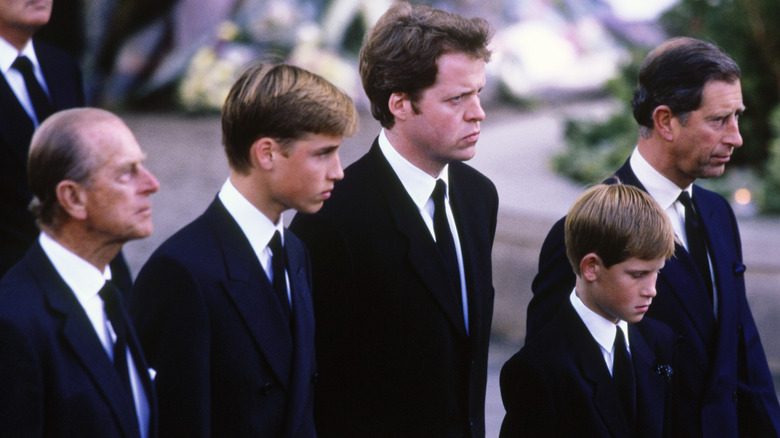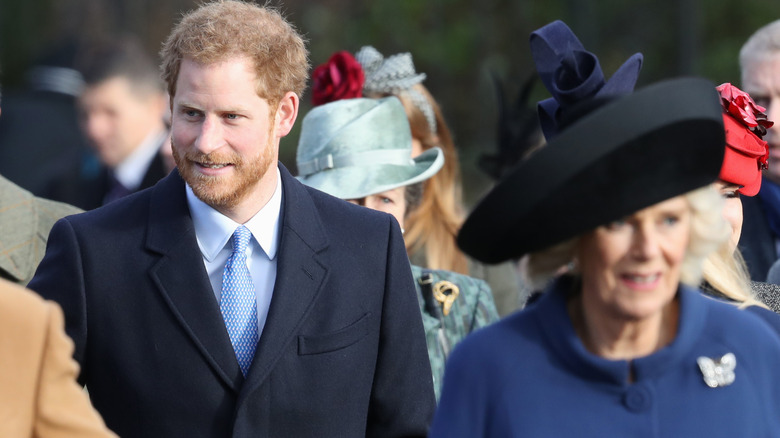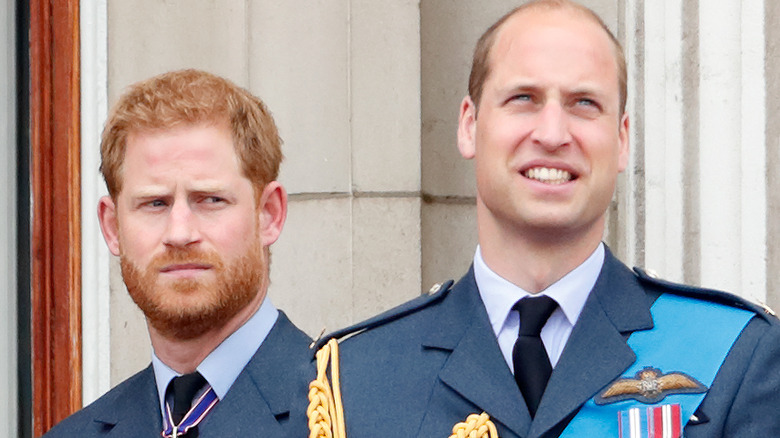The Most Scandalous Royal Family Interview Moments
The royal family dominates the media with drama-filled sagas that rival the juiciest soap operas. In recent years, the royals have been under the spotlight like never before, thanks in part to some unforgettable interviews that have captured the attention of the world. Who could forget the seismic Oprah Winfrey interview with Prince Harry and Meghan Markle, where they lifted the veil on palace life, exposing the inner workings of the monarchy and revealing personal struggles?
But the drama doesn't stop there. Enter Prince Andrew, whose disastrous interview with BBC's Emily Maitlis sent shockwaves through Buckingham Palace and beyond. His attempt to address his association with convicted sex offender Jeffrey Epstein backfired spectacularly, leaving more questions than answers and tarnishing the royal family's reputation. And who could overlook the poignant interviews given by the beloved Princess Diana? From her candid conversation with Martin Bashir, where she famously declared, "There were three of us in this marriage," to her heartfelt admissions about her struggles with mental health and bulimia, Diana's interviews were a beacon of honesty in a sea of royal protocol.
This article is not merely a recounting of scandal and controversy, but a celebration of the resilience and humanity behind the royal facade. Through laughter and tears, triumphs and tribulations, these interviews remind us that even the royal family are just human beings navigating life's complexities.
King Charles had an odd response when asked if he was in love with Princess Diana
King Charles III proposed to Princess Diana in February 1981, making their courtship less than a year. Under mounting societal expectations to secure a suitable spouse, Charles, having achieved this objective, swiftly moved to formalize their commitment. The official announcement of their engagement on February 24, 1981, was followed by a customary televised interview.
Evidently, the interviewer was prodding the couple for some juicy soundbites, and Charles sure gave them exactly what they were looking for. During the conversation, when questioned about their feelings, Charles responded, "Just delighted and happy," and joked, "I'm amazed that she's been brave enough to take me on!" But, wanting a bit more, the interviewer asked, "And, I suppose, in love?" Diana quickly replied "Of course" and Charles delivered what is probably the most infamous line he's ever uttered: "Whatever 'in love' means."
Despite Diana's laughter in response, she later confessed feeling deeply unsettled by Charles' remark. In the 2017 Channel 4 documentary, "Diana: In Her Own Words," the princess admitted to finding the entire interview completely horrible. "We had this ghastly interview the day we announced our engagement and this ridiculous [reporter] said, 'Are you in love?' I thought, what a thick question. So I said, 'Yes, of course, we are' ... Charles turned around and said, 'Whatever in love means.' And that threw me completely. I thought, what a strange answer. God, absolutely traumatized me."
Princess Diana admitted to self-harming and an eating disorder
Princess Diana's groundbreaking interview with Martin Bashir, titled "An Interview with H.R.H. The Princess of Wales," aired on the Panorama series in November 1995. Set in her Kensington Palace sitting room, the candid discussion delved into her royal life and marriage, notably her battles with postnatal depression, bulimia, and her husband's affair with Camilla, Queen Consort.
During the interview, Diana revealed the lack of familial support during her postpartum depression, expressing how she felt dismissed as unstable by the royal circle. Acknowledging her struggles with self-harm and bulimia, she attributed her pain to the turmoil within her marriage, lamenting the misinterpretation of her cries for help. "When no one listens to you, or you feel no one's listening to you, all sorts of things start to happen," Diana said during the interview. "For instance, you have so much pain inside yourself that you try and hurt yourself on the outside because you want help, but it's the wrong help you're asking for."
Addressing her bulimia, Diana highlighted its role as a coping mechanism amidst marital distress, emphasizing the underlying emotional turmoil. She told Bashir, "I was crying out for help, but giving the wrong signals, and people were using my bulimia as a coat on a hanger. They decided that was the problem — Diana was unstable." In 2020, revelations surfaced regarding the deceptive means Bashir employed to secure the interview, reigniting interest in Diana's legacy and prompting scrutiny of media ethics.
If you need help with an eating disorder, or know someone who does, help is available. Visit the National Eating Disorders Association website or contact NEDA's Live Helpline at 1-800-931-2237. You can also receive 24/7 Crisis Support via text (send NEDA to 741-741).
Prince Andrew made bizarre revelations during a BBC interview
In what can only be described as a car crash interview, Prince Andrew spoke about his connection to Jeffrey Epstein with Emily Maitlis for BBC Newsnight in 2019. The conversation took place at Buckingham Palace and the prince faced severe backlash afterward, failing to address his connection with Epstein and his previous convictions involving minors. Furthermore, Andrew's responses to queries regarding an alleged encounter with a 17-year-old associated with Epstein were met with skepticism.
For instance, he cited a medical condition to dispute claims of excessive sweating during the purported incident. In the odd revelation, he told Maitlis, "I didn't sweat at the time because I had suffered what I would describe as an overdose of adrenalin in the Falklands War when I was shot at ... it was almost impossible for me to sweat." Moreover, the prince disputed the authenticity of the infamous photograph taken of him with his arm around the waist of his most prominent accuser, Virginia Giuffre, née Roberts. "I don't believe it's a picture of me in London because ... when I go out in London, I wear a suit and a tie," he said.
In the strangest part of the interview, he vividly recalled an outing to Pizza Express in Woking on the day of the alleged events, underlining its rarity in his routine, and how it was "a very unusual thing" for him to do.
Meghan Markle accused Princess Catherine of making her cry
In 2021, Meghan Markle and Prince Harry sat down for an interview with Oprah Winfrey that surely had those at Buckingham Palace shaking in their Barbour jackets. The interview hit us with several moments that spread like wildfire on social media, including Opray's infamous line, "Were you silent or were you silenced?" What many clung on to though was the revelation that Princess Catherine was the one who made Meghan cry, rather than the widely reported opposite. The incident, which occurred during a disagreement over flower girl dresses had long been a subject of speculation.
By addressing the elephant in the room, Meghan challenged the narrative that had been perpetuated by the media. When Oprah asked if there had been a situation in which Catherine would have cried, Meghan answered, "No, no. The reverse happened. And I don't say that to be disparaging to anyone, because it was a really hard week of the wedding. And she was upset about something, but she owned it, and she apologized" (via The Sun). Princess Catherine opted to maintain a dignified silence.
In his book "Spare," Prince Harry shared unseen texts between Meghan and Catherine, with the latter telling Meghan that Princess Charlotte's dress was too big, to which Meghan responded that a tailor was standing by to assist with any alterations. Basically, the entire text exchange was somewhat relatable in the lead-up to a wedding that would be watched by millions of viewers.
Meghan Markle and Prince Harry accused the royal family of being racist
In the controversial 2021 interview with Oprah Winfrey, Prince Harry and Meghan Markle hit the metaphorical red button so hard that their nuclear revelation could take out the planet. Among the most significant disclosures was Meghan's revelation that there were "concerns" within the royal family about the skin color of their son, Archie.
"So we have in tandem the conversation of 'He won't be given security, he's not going to be given a title' and also concerns and conversations about how dark his skin might be when he's born," Meghan told Oprah. When Oprah pressed her on who was questioning what color Archie's skin might be, Meghan didn't reveal who it was, and neither did Prince Harry later on. However, Oprah made it clear in an interview on CBS Mornings that Harry had informed her that it was not Queen Elizabeth II nor Prince Philip.
In the book "Endgame: Inside the Royal Family and the Monarchy's Fight for Survival" by journalist Omid Scobie, King Charles III and Princess Catherine were revealed to be the "royal racists" who hadn't been revealed thus far. However, their names were never meant to be put in the book and were only revealed in the Dutch version amid claims the translators received the wrong manuscript.
Meghan Markle expressed she had suicidal thoughts
In a deeply revealing conversation as part of their Apple TV+ series "The Me You Can't See" in 2021, Prince Harry opened up to Oprah Winfrey about Meghan Markle's struggle with suicidal ideation during her pregnancy with their son Archie. Harry disclosed that Meghan refrained from acting on her thoughts because she didn't want to cause him further pain, particularly after the losses he had endured.
In their earlier joint interview with Oprah, Meghan spoke about reaching a breaking point, expressing her despair at the relentless scrutiny. Despite her fear of burdening Harry with her struggles, Meghan eventually confided in him, sharing her constant thoughts of not wanting to be alive anymore. Harry reflected on the gravity of Meghan's clarity of thought during those dark moments, emphasizing her sobriety and sanity amidst her despair.
The couple recounted a moment at a Cirque du Soleil performance in January 2019 and the turmoil they were both experiencing behind their public personas. Harry expressed regret at the way they navigated those challenging times within the confines of royal duties, highlighting the lack of options and support available to them. Meghan revealed that despite reaching out to the palace for help, she was turned away, leaving her feeling silenced and abandoned. This prompted experts to weigh in on Meghan Markle's body language over that time. Her decision to speak out about mental health struggles was driven by a desire to break the stigma surrounding mental illness.
Prince Harry changed his tune on royal racism claims
Prince Harry found himself making headlines in 2023 when he tried to correct the narrative that the royal family was racist — a story that spread as a result of his and Meghan Markle's Oprah Winfrey interview in 2021. In a surprising twist, Harry addressed the matter during an interview with Tom Bradby for ITV. When Bradby insinuated Harry called his family racist, Harry interjected with, "No, I didn't. ... The British press said that." However, the denial didn't stop there. Harry further reinforced his position during an appearance on "Good Morning America" by asserting, "It's not racism, but unconscious bias."
The initial controversy arose from Meghan's revelations to Oprah, where she disclosed concerns raised within the royal family regarding the potential skin color of their son, Archie. Amid the controversy, Prince William emphasized to reporters, per The Guardian, that the royal family is "not a racist family" while Queen Elizabeth II dropped her infamous line, "recollections may vary" (via The Telegraph).
During his interview with Bradby, Harry acknowledged the troubling nature of the "concerns" expressed but stopped short of divulging further details. He highlighted the prevalence of similar discussions in mixed-race couples globally, framing them as part of a broader conversation and suggested that the comments regarding Archie's skin color were indicative of "unconscious bias" rather than outright racism. He delineated the distinction between the two, emphasizing the importance of acknowledging and addressing unconscious biases to prevent their evolution into racism.
Prince Harry demanded to see pictures of Princess Diana's car crash
In his book "Spare," the Duke of Sussex revealed his quest to uncover the truth behind the tragic car crash that claimed Princess Diana's life in 1997. During an interview with ITV's Tom Bradby in 2023, he recounted his haunting experience of viewing photographs and a clandestine government file related to the incident. "I saw the photographs of the reflection of all the paparazzi in the window," Harry recounted, describing the surreal sight of his mother's blond hair and her body slumped on the seat. Despite the removal of some graphic images, Harry expressed gratitude for the evidence as something tangible to comprehend the tragedy.
In his memoir, Harry recalled the moment he learned of his mother's death from his father, King Charles III. He waited for reassurance, only to be confronted with the devastating truth, "She didn't make it." Reflecting on his grief, Harry disclosed his solitary tears at his mother's burial, delving into the peculiar mix of emotions and guilt he and his brother, Prince William, endured.
Describing the surreal experience of greeting mourners at Kensington Palace, Harry revealed the disconnect between the public's perception of their grief and their internal turmoil. The decision for Harry and William to walk behind their mother's coffin during the London procession was a mutual one, born out of fraternal solidarity. "I would never let [William] do that alone," Harry wrote.
Prince Harry described Queen Camilla as a 'villain'
In his memoir, Prince Harry offered a unique perspective on Camilla's ascent to the role of Queen Consort, shedding light on the intricacies of her relationship with King Charles III. Their marriage in 2005 marked the culmination of a decades-long romantic entanglement.
Recounting Princess Diana's poignant description of Camilla, Queen Consort, as the "third person" in her marriage, Harry underscored the enduring impact of this sentiment. During an interview with Anderson Cooper on "60 Minutes" in 2023, Harry reflected on the media's portrayal of Camilla as a nefarious figure, even claiming they considered her a "villain." When queried about his and Prince William's reservations regarding his father's marriage to Camilla, Harry admitted he expressed concerns. They questioned the necessity of the union despite prioritizing their father's happiness and observing his apparent contentment with Camilla.
In the interview with Cooper, Harry talked about Camilla's efforts to reshape her public image, noting the risks associated with her endeavors to curry favor with the British press. In his book "Spare," he wrote that Camilla had sacrificed him "on her personal P.R. altar." He gave a bigger insight into this, telling Cooper, "If you are led to believe, as a member of the family, that being on the front page, having positive headlines, positive stories written about you, is going to improve your reputation or increase the chances of you being accepted as monarch by the British public, then that's what you're going to do."
Prince Harry detailed a physical altercation with Prince William
According to Prince Harry in his memoir "Spare," he and Prince William got into a physical altercation in 2019, attributing it to issues "which were based not on reality." Speaking candidly on "60 Minutes" with Anderson Cooper in 2023, Harry recounted the heated exchange that occurred at Nottingham Cottage, his residence within Kensington Palace. "We moved from one room into the kitchen. And his frustrations were growing and growing and growing. He was shouting at me. I was shouting back at him. It wasn't nice. It wasn't pleasant at all. And he snapped. And he pushed me to the floor," Harry revealed.
Describing the confrontation as a culmination of frustrations, Harry highlighted William's exposure to certain narratives within his office and the tabloid press. Defending Meghan Markle, who was absent during the incident, Harry emphasized his instinct to protect his wife against perceived attacks. The altercation escalated as tensions flared, leading to a physical confrontation in the kitchen where Harry was pushed to the floor. Reflecting on the aftermath, Harry revealed the emotional toll of the experience, recalling the marks left by a dog bowl on his back.
Prince Harry has endured many tragedies in his life and admitted to seeking therapy to cope, especially regarding his relationship with anger. In an interview with ITV's Tom Bradby, Harry reflected on his past struggles with anger, opting not to retaliate. As for his relationship with William, Harry expressed hope for reconciliation.

